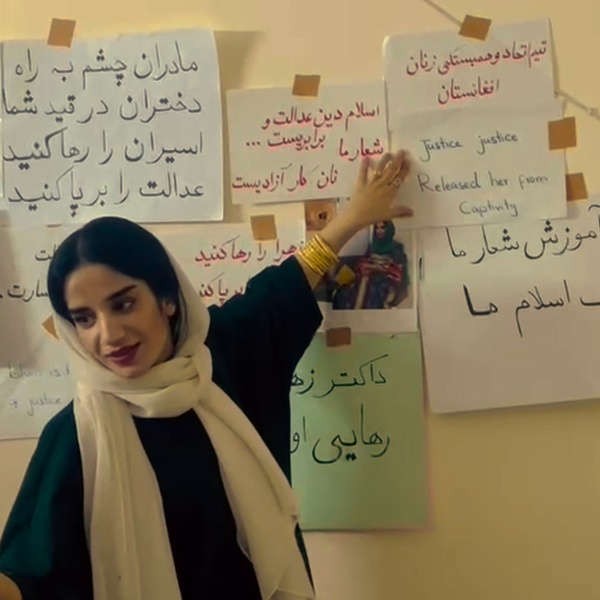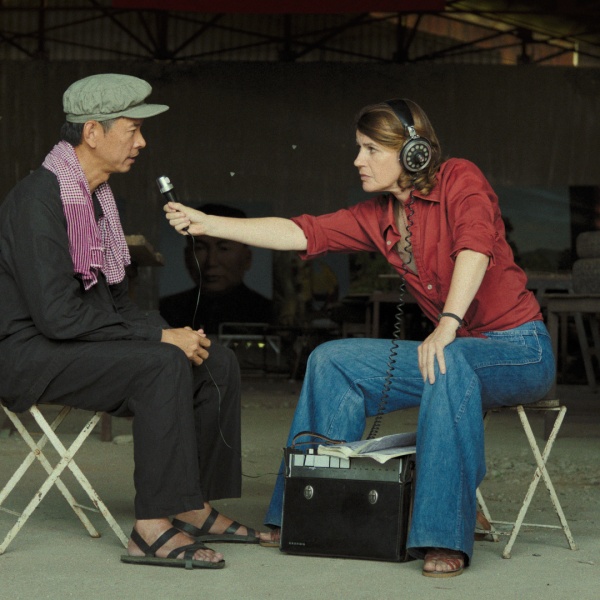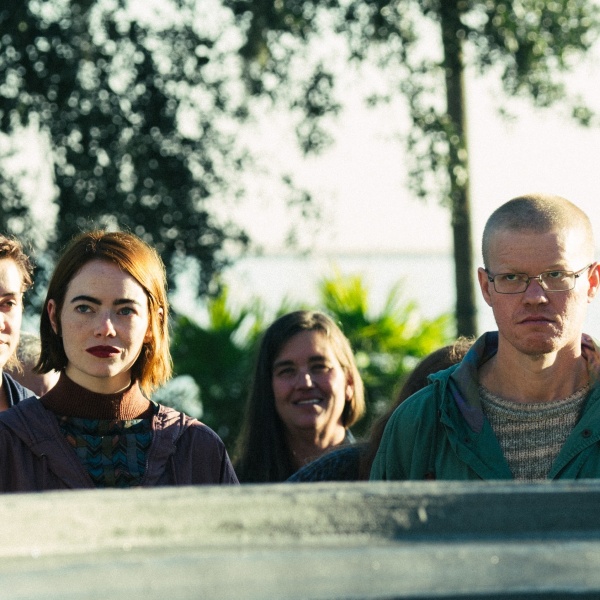A gloriously demented fairy tale about a guileless soccer phenom who reacts to his World Cup loss by adopting a Mozambican who turns out to be an adult lesbian spy in disguise, Gabriel Abrantes and Daniel Schmidt’s “Diamantino” is one of the most original movies of the 21st century. “Amelia’s Children,” which Abrantes has directed on his own, is not. And yet, this comparatively straightforward psychological horror movie — which adheres to genre convention whenever it can, and has even fewer surprises in store than its premise would seem to suggest — is still playful and perverse enough in its details to indicate a unique talent behind the camera.
Case in point: “Attractive people in a creepy house” might be the single most basic setup a horror movie could possibly have, but Abrantes’ script comes up with a novel way of putting those pieces in place. In a way, “Amelia’s Children” could be seen as a cautionary tale about the consequences of using 23andMe (knowing your history can be its own kind of curse), as it all kicks off when a handsome, mild-mannered New Yorker named Edward (“Diamantino” star Carloto Cotta) agrees to take a DNA test at the behest of his beautiful nurse girlfriend, Ryley (“I Saw the TV Glow” breakout Brigette Lundy-Paine, who’s gone from virtual unknown to one of the most exciting young actors on the planet in less than two months). Edward was adopted as a baby, and Ryley senses that some answers to his ancestry might do her man some good.
Thanks to an eerie prologue, however, we already know something that Ryley doesn’t: Edward wasn’t adopted so much as he was abducted — stolen from his mother’s lavish Portuguese manor in the middle of the night before he somehow made his way into the American foster system. When the results of Edward’s ancestry test connect him to the twin brother he never knew he had, it’s only a matter of time before our hero and his devoted partner are on a plane to Lisbon in order to reconnect with his birth family. Judging by the ominous nightmares that Edward has been suffering as of late (shadow ghosts hiding in the bathroom, Goya-esque visions of infanticide, that sort of thing), it’s a safe bet that he and Ryley’s trip to Portugal won’t be all smiles and pastéis de nata. And sure enough, the old farmer who Ryley asks for directions on their way to Edward’s ancestral home responds with a classic, bug-eyed, “LEAVE HERE AT ONCE” routine.
As soon as Edward lays eyes on the remote but remarkably decadent forest estate where his mother still lives, there’s little chance that he’ll want to go back to his cramped Manhattan apartment any time soon. It’s there, at Quinta de Fonda Eterna, where the close-cropped Edward is reunited with his shaggy-haired identical twin, Manuel (Cotta again, continuing Abrantes’ soapy fascination with doubles and doppelgängers), and things get weird in a hurry. When Edward asks if Manuel’s pet birds are brothers, his twin coyly replies: “Lovers.” There’s nothing like catching some major incest vibes from your long-lost sibling within 10 minutes of finally meeting them for the first time, and those vibes only grow more intense — a lot more intense — when Edward discovers that Manuel sleeps in his mother’s bed every night.
Of course, Amelia is a red flag in her own right. Played by fortysomething actress Anabela Moreira, her needy eyes glowing from beneath the monstrous facial prosthetics that make her look like an 80-year-old woman with a five-year-old face, Edward’s mother seems to be harboring some issues with narcissism. It’s not just the fact that her lips are swollen with more dermal fillers than you might see in an entire season of “Vanderpump Rules,” or that she greets Ryley with a vituperative lecture about how “Time is a whore that eats us like potatoes.” If only Amelia’s antipathy towards aging stopped at plastic surgery and resentment. But it doesn’t, and both of her new houseguests will soon learn why.
Aside from a handful of errant wrinkles and predictable twists, that’s about as much plot as “Amelia’s Children” is willing to muster, as Abrantes is — to a point — far more interested in the campy perversions of Amelia’s vanity than he is in the story behind them. As the movie goes on and the mystery starts to unravel, forward momentum is only sustained by Edward and Ryley’s very different responses to the fucked up fairy tale they find themselves trying to survive. For his part, Edward is seduced by the promise of a family and all that comes with it; in this case, a weird psychic bond with his brother and a portion of Amelia’s €65 million fortune. Ryley, on the other hand, takes a more skeptical approach to the shenanigans at hand, and eventually displaces her boyfriend as the film’s main character as Abrantes sends her in pursuit of Amelia’s secrets.
That seems to be a blessing at first, as Cotta — a perfectly symmetrical mega-talent who always seems like he’s stifling a laugh — isn’t given much of a chance to make anything of the dueling himbos he plays, even as his double role splinters again as the movie goes on. Lundy-Paine, however, is free to capitalize on their wide-eyed intensity, which allows Ryley to strike an arresting balance between curiosity and fear; one scene, in which she interrogates a local woman for answers with the help of Google Translate, makes for a wickedly effective example of how cell phones can be as much of a benefit to modern horror movies as they are a hindrance (you’ll be shocked to discover that Amelia’s house doesn’t have a strong signal).
Lundy-Paine’s inherent watchability isn’t quite enough to redeem the slow and jumpy sequences in which their character snoops around the house after dark (sometimes in her dreams, or, at one particularly frustrating point, in a dream within Ryley’s dreams), but that’s only because Abrantes takes such a half-hearted approach to these pro forma scares. You can almost feel the director coming alive behind the camera whenever “Amelia’s Children” shifts gears from a gothic horror story to a giallo-inflected satire about the European aristocracy’s penchant for self-preservation at any cost. You can practically hear Abrantes licking his lips as Amelia introduces Edward to her estate agents as her “boyfriend” (and her estate agents to Edward as her “slaves”), and he so relishes in the strangely ritualistic dance that Amelia does with her sons whenever “The Girl from Ipanema” comes over the record player that you can’t help but smile at the ridiculousness of it all.
It’s no coincidence that scene makes for one of the more stylistically assured moments in a film that always looks nice, but seldom matches the dazzling virtuosity that Abrantes and Schmidt brought to every frame of “Diamantino.” But “Amelia’s Children” has an ace up its sleeve in that regard — a climactic shot that will make you laugh out loud and recoil in disgust all in one breath. It’s a visual that makes vilely good on Amelia’s accusation that time is “a perfidious monster that plumbs tragedy into comedy,” and the kind of sincerely demented spectacle that only a small handful of filmmakers have the chops to pull off on their own terms. Worn down and familiar as some of this kooky genre exercise can be, it ultimately confirms that Abrantes has what it takes to make the movies feel young again.
Grade: B-
Magnolia Pictures will release “Amelia’s Children” in theaters and on VOD on Friday, March 1.




